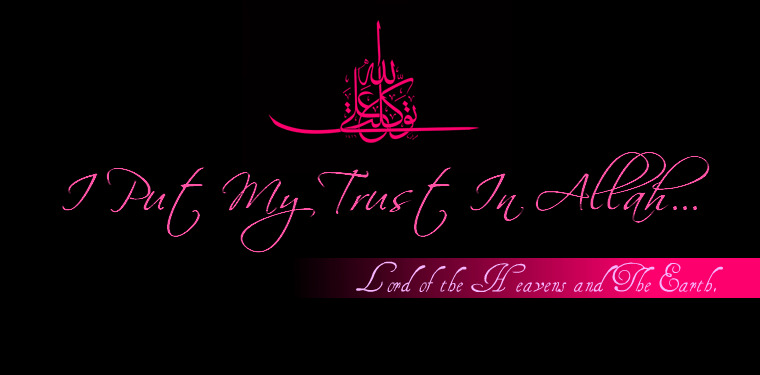Imaam Ibn al-Qayyim al-Jawziyyah rahimahullaah
--------------------------------------------------------------------------------
1. The Hadeeth Qudsee [Reported by Muslim, Maalik, at-Tirmidhee, Abu Daawood, an-Nasaaee and Ibn Maajah]: I have divided the prayer between Myself and My servantAbu Hurairah (ra) said: I have heard the Messenger Muhammad (saw) say:
"Allah (the Mighty and Sublime) has said: I have divided prayer between Myself and My servant into two halves, and My servant shall have what he has asked for. When the servant says:
All praise belongs to Allaah the Rabb of all the Worlds.
Allah (mighty and sublime be He) says: My servant has praised Me.
And when he says:
The Most Gracious the Most Merciful
Allah (mighty and sublime be He) says: My servant has extolled Me, and when he says:
Master of the Day of Judgement
Allaah says: My servant has glorified Me -and on one occasion He said: My servant has submitted to My power.
And when he says:
You alone do we worship and from You alone do we seek help
He says: This is between Me and My servant, and My servant shall have what he has asked for.
And when he says:
Guide us to the Straight Path, the Path of those whom you have favoured, not of those upon whom is your anger, nor of those who are astray
He says: This is for My servant, and My servant shall have what he has asked for
And when he says: All praise is due to Allaah the Rabb of all the Worlds, he pauses for a short while waiting for the response of his Lord: "My servant has praised Me." Then when he says: The Most Gracious the Most Merciful, he waits for the response: "My servant has extolled Me" and when he says: Master of the Day of Judgement, he waits for the response: "My servant has glorified Me."
It is the delight of his heart, the pleasure of his eye and the joy of his soul that his Lord says about him: "My servant" three times. By Allaah! If the fumes of desire and the darkness of the souls were not upon the hearts, they would have flown out of happiness and joy that their Lord, Maker and Deity says: "My servant has praised Me, My servant has extolled Me and My servant has glorified Me."
Then there would have been space in his heart to witness (the reality) of these three names which are the basis of all the Beautiful Names and these are: Allaah, ar-Rabb and ar-Rahmaan...
...When he says: Master of the Day of Judgement, he witnesses the glory which be fits none but the King, the Truth, the Manifest. So he witnesses a very powerful and compelling King, to Whom the whole creation has yielded, to Whom the faces are humbled, to Whom the creation humbles itself, and to Whom every possessor of power and honour submits to. He witnesses with his heart a King (Who is) upon the Throne of the Heaven...
...And when he says: You alone do we worship and from You alone do we seek help, in which lies the secret of the creation and the affair, of the world and the hereafter, and which contains the loftiest of goals and the most excellent of means (of approach to Allaah). The loftiest of goals is enslavement to Allaah and the most excellent of means is His help and assistance.
There is no deity deserving of worship in truth except He and there is no helper in His worship besides Him. Therefore, His worship is the greatest of goals and His aid is loftiest of means...
...And these words contain the two types of Tawheed and they are Tawheed ur-Ruboobiyyah and Tawheed ul-Uloohiyyah. Devotion and Enslavement to Allaah is comprised in the names ar-Rabb and Allaah, so he is worshipped on account of His Uloohiyyah, help is sought from Him on account of His Ruboobiyyah and He guides to the Straight Path on account of His Mercy.
The first part of the surah therefore, mentions His names Allaah, ar-Rabb and ar-Rahmaan for the purpose of the one who seeks His worship, help and guidance. He is alone in being able to bestow all of that. There is no one who can aid others in His worship besides Allaah and none can guide (to the Straight Path) except Him.
Then the caller realises with the speech of Allaah: Guide us to the Straight Path, his extreme need for this (guidance). He is never in need of any other thing as much as he is for this guidance. He is need of it in every moment and at every glance of the eye...
...Then Allaah makes it clear that the people of this Guidance are those who have been specified with His favour, not of those upon whom is His anger, and they are the ones who know the Truth but do not follow it and not of those who are astray, and they are those who worship Allaah without knowledge.
Both of these groups share with each other in speaking about His creation, His command and His Names and Attributes without knowledge. The path of those upon whom is His favour and blessing is different from the people of falsehood with respect to knowledge and action.
When he finishes from this praise, supplication and tawheed he has been ordered to end it with "aameen", which is a seal to (to his supplication) and to which the aameen of the angels in sky coincides with. This aameen is from the beautification of the prayer, just like the raising of the hands is a beautification of the prayer, a following of the sunnah, veneration of the command of Allaah, worship by the hands and a sign of the movement from one pillar (of the prayer) to another.
[Taken from [As-Salaat wa Hukmu Taarikihaa], p. 171-172]


